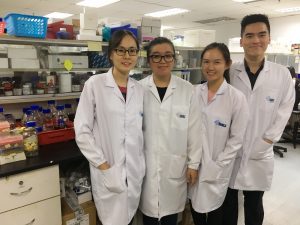[fusion_builder_container hundred_percent=”no” equal_height_columns=”no” menu_anchor=”” hide_on_mobile=”small-visibility,medium-visibility,large-visibility” class=”” id=”” background_color=”” background_image=”” background_position=”center center” background_repeat=”no-repeat” fade=”no” background_parallax=”none” parallax_speed=”0.3″ video_mp4=”” video_webm=”” video_ogv=”” video_url=”” video_aspect_ratio=”16:9″ video_loop=”yes” video_mute=”yes” overlay_color=”” overlay_opacity=”0.5″ video_preview_image=”” border_size=”” border_color=”” border_style=”solid” padding_top=”” padding_bottom=”” padding_left=”” padding_right=””][fusion_builder_row][fusion_builder_column type=”1_1″ layout=”1_1″ background_position=”left top” background_color=”” border_size=”” border_color=”” border_style=”solid” border_position=”all” spacing=”yes” background_image=”” background_repeat=”no-repeat” padding=”” margin_top=”0px” margin_bottom=”0px” class=”” id=”” animation_type=”” animation_speed=”0.3″ animation_direction=”left” hide_on_mobile=”small-visibility,medium-visibility,large-visibility” center_content=”no” last=”no” min_height=”” hover_type=”none” link=””][fusion_text] Four International Medical University (IMU) Semester 7 students, Er Jia Lin, Goh Pei Ni, Lee Chen Yuan, and Tang Ying Jie from the School of Pharmacy have identified new combinatorial therapeutics for pancreatic cancer using machine learning. These students’ involvement in this research project is part of the requirement of their four-year pharmacy degree programme. A recent Malaysian Study on Cancer Survival (MySCan) highlighted pancreatic cancer as one of three cancers with the lowest 5-year relative survival in Malaysia. Pancreatic cancer patients have a devastatingly low five-year survival rate of less than 5% with current therapy options. One of it is gemcitabine, which remained as the standard first line chemotherapy. The poor survival rate could be due to the poor understanding of pancreatic cancer and the misdiagnosis.
With that in mind, the students, with the supervision of Prof Leong Chee Onn, also the Deputy Director, Institute for Research, Development and Innovation, have successfully differentiated pancreatic cancers into four molecular subtypes based on their molecular pathology, gaining a deeper understanding on the pathogenesis of pancreatic cancer. This understanding led to the identification of key biological processes prognostic biomarkers and predictive signatures for drug response.
“Basing our research on the understanding above, we were able to discover the potential drugs that may be more effective when used in combination with Gemcitabine targeting the specific subtype of pancreatic cancer. It’s a breakthrough and a potential new hope to treat pancreatic cancer using targeted therapy. Targeted therapy is a cancer treatment targeting specific genes or protein found in the cancer cells to stop the cancer from growing or spreading.” said Goh Pei Ni, who is currently working as a community pharmacist assistant in Malacca.
When asked about their experience and key learnings from the research project, all four of them were unanimously impressed and blown away by the power of Big Data in carrying out a scientific research. Lee Chen Yuan, currently a pharmacist assistant in a local community pharmacy said, “The vast knowledge regarding pancreatic cancer, Big Data and the other software used made me realise that data science and technology is essential for searching new drugs or even new uses for existing drugs. This experience has given me the motivation to keep learning and improving to become a better pharmacist in the future.” Tan Ying Jie’s key learnings were “…not every trial of research gives a positive and satisfied result and determination is one of the most crucial elements that I have learnt through this research. We had to repeat the experiments many times while trying our best to reduce unnecessary errors to the least.”
Despite that, she continued by saying “through this research, I realised how powerful a research would contribute to better treatment plans on terminal diseases, bringing new hope to the patients. Hence, I hope I can contribute more in discovering better drugs to treat different diseases in the future.”
Er Jia Lin added that “I really enjoyed culturing the cancer cells and testing them with the inhibitors identified. I could still remember vividly the satisfactory feeling when I saw the result that the drugs were actually effective against the cancer cells. Big data can sound intimidating, but I would encourage other students to give bioinformatics a try because it is interesting. Students may be surprised at how big data can help to repurpose drugs. Do not be afraid to seek for help to understand computer system biology. Also, do not expect that every research will produce a fruitful result. Instead, keep our hearts and minds opened to various possibilities that could improve the research. Every failure will only bring one closer to the next success.” Goh Pei Ni also concurred that by saying “All of the new experiences while working on the project have open my eyes to the power of research in making the world a better place using the technology of pharmaceutical sciences.” Lee Chen Yuan further added that he was very thankful for the opportunity to participate in this research under Prof Leong Chee Onn, Dr Mai Chun Wai and Dr Felicia Chung as it was an amazing experience. Not everyone is fortunate enough to have the same exposure into the world of life sciences and research. [/fusion_text][/fusion_builder_column][/fusion_builder_row][/fusion_builder_container]


